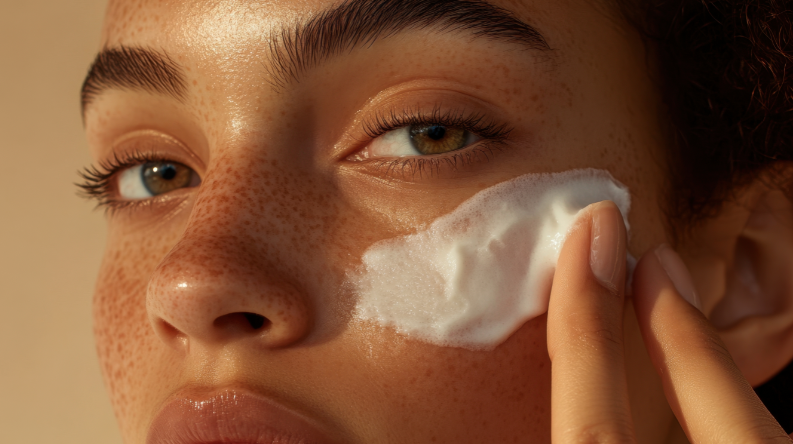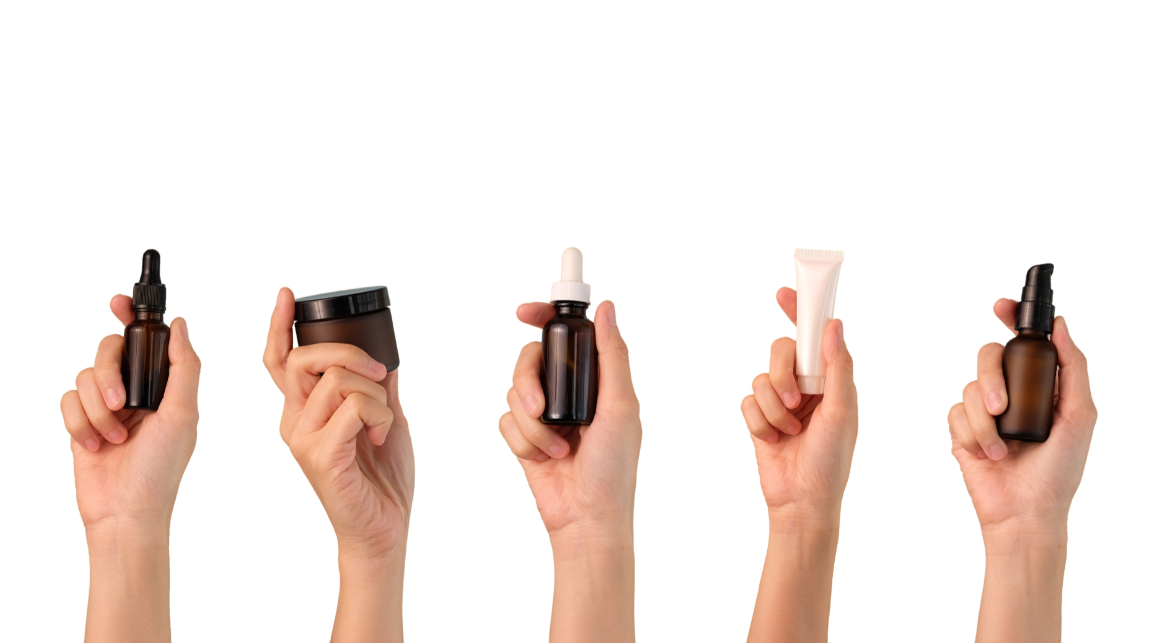


Date: 06 Oct 2025
Taking care of your skin starts with understanding it. Many people follow popular skincare routines or use trending products, only to find their skin still breaking out, becoming excessively oily, or feeling uncomfortably dry.
The reason is often simple — the routine doesn’t match their skin type. Whether you have oily or dry skin, using products and routines tailored to your specific needs is essential for achieving healthy, balanced skin.
Your skin type plays a major role in how your skin reacts to products, weather, diet, and other external factors.
Oily skin produces more sebum than necessary, often resulting in shiny skin, clogged pores, and frequent breakouts. Dry skin, in contrast, lacks sufficient moisture and oil, which leads to tightness, flaking, and sometimes irritation.
Understanding your skin type helps you choose products with the right ingredients. For instance, oily skin benefits from lightweight, oil-free products that help control shine, while dry skin needs rich, nourishing formulations that restore moisture.
If you use products not suited for your skin type, you could make your skin concerns worse instead of better.
Oily skin requires a balanced routine that reduces excess oil while keeping the skin hydrated. The goal is to cleanse without stripping, moisturize without clogging, and protect without adding shine.
For oily skin, start your day with a gentle foaming cleanser that helps remove dirt, oil, and impurities. Ingredients like salicylic acid or tea tree oil are especially helpful, as they penetrate deep into the pores and prevent breakouts.
Avoid using harsh scrubs or soaps that can irritate the skin and cause it to produce even more oil. Cleansing twice a day — in the morning and before bed — is enough to keep your skin fresh and oil-free without over-drying it.
Many people with oily skin skip moisturizer, thinking it will make their skin oilier. However, this is a mistake.
When your skin lacks hydration, it often produces more oil to compensate. Instead, use a lightweight, oil-free moisturizer that keeps the skin hydrated without feeling greasy.
Look for ingredients like niacinamide, which regulates oil production, and hyaluronic acid, which adds moisture without adding oil.
Sunscreen is crucial, even if you have oily or acne-prone skin. Choose a broad-spectrum SPF that is labeled non-comedogenic and oil-free to avoid clogging your pores.
Gel-based or matte-finish sunscreens are excellent options, as they protect your skin from harmful UV rays while keeping shine under control throughout the day.
Dry skin needs extra care to restore and lock in moisture. The key is to use gentle, nourishing products that hydrate the skin and strengthen its natural barrier.
Dry skin should be cleaned with a cream-based or lotion-based cleanser that gently removes dirt without stripping away natural oils.
Avoid foaming cleansers or those with alcohol, as they can make dryness worse. Look for ingredients such as glycerin or ceramides, which help hydrate the skin and maintain its protective barrier.
After cleansing, apply a hydrating serum or essence to give your skin an extra layer of moisture. Serums containing hyaluronic acid, panthenol, or aloe vera are excellent for drawing water into the skin and improving elasticity.
Follow this with a rich moisturizer that contains ingredients like shea butter, ceramides, or squalane to lock in hydration and keep the skin soft and supple throughout the day.
Sunscreen is just as important for dry skin as it is for any other type. Choose a moisturizing sunscreen that not only protects against UV rays but also nourishes your skin.
Look for SPFs with added emollients like vitamin E or glycerin, which help keep the skin smooth and hydrated. Avoid sunscreens with drying alcohols or fragrances that could cause irritation.
Avoiding these common mistakes can make a big difference in your skincare results:
1. Over-cleansing — Washing your face too often or using harsh cleansers strips the skin of natural oils. This can trigger more oil production in oily skin and cause irritation in dry skin.
2. Skipping Moisturizer — Even oily skin needs hydration. Skipping moisturizer can lead to dehydration, causing the skin to produce more oil to compensate or become flaky and uncomfortable.
3. Ignoring Sunscreen — UV damage speeds up aging and worsens skin concerns. Using the wrong type of sunscreen — or none at all — can lead to dark spots, dryness, and increased sensitivity.
4. Using the Wrong Products for Your Skin Type — Using heavy products on oily skin can clog pores, while drying products on dry skin can lead to irritation and flaking. Always choose products based on your skin type.
5. Not Reading Ingredient Labels — Some products contain alcohol, fragrance, or comedogenic ingredients that may irritate or clog pores. Always check the ingredient list and look for labels like “non-comedogenic” or “for sensitive skin.”
6. Skipping Patch Tests — Trying new products without testing them first can lead to allergic reactions or breakouts. Always test a small amount behind your ear or on your wrist before full application.

Here are top dermatologist-recommended skincare products you can find at Pharmily Limited Kenya. These products are trusted globally and suited for local skin concerns and climates.
1. CeraVe Foaming Facial Cleanser — This gentle foaming cleanser removes dirt, excess oil, and makeup without disrupting the skin's natural barrier. It contains ceramides and niacinamide, making it perfect for oily and acne-prone skin.
2. Neutrogena Hydro Boost Gel — A lightweight, oil-free moisturizer packed with hyaluronic acid. It deeply hydrates without clogging pores or leaving a greasy feel, ideal for oily or combination skin.
3. La Roche-Posay Anthelios Anti-Shine — A mattifying, broad-spectrum sunscreen specially designed for oily and sensitive skin. It controls shine and provides long-lasting protection against UVA/UVB rays.
1. CeraVe Hydrating Cleanser — A non-foaming, gentle cleanser that retains moisture while effectively cleansing. Contains ceramides and hyaluronic acid to support the skin barrier.
2. CeraVe Advanced Repair Ointment — This is a dermatologist-developed formula designed to repair and protect extremely dry, cracked, and sensitive skin. Enriched with ceramides and hyaluronic acid, this intensive ointment helps restore the skin barrier while providing long-lasting hydration.
3. Bioderma Photoderm Cream — A moisturizing sunscreen with added antioxidants, suitable for dry and sensitive skin. It offers high UV protection while keeping the skin soft and hydrated.
Your skin communicates with you every day. Whether it’s producing too much oil or feeling uncomfortably dry, those signs are your skin asking for help. The best skincare routine is one that is consistent, customized, and based on your individual skin type.
By choosing the right products and avoiding common mistakes, you’ll be able to restore balance, improve texture, and achieve healthier, more radiant skin over time. Don’t rush the process — skincare is a journey, and with patience and the right support, your skin will thank you.
Q Can I use the same products all year round?
Not always. Your skin's needs may change depending on the season, humidity, and your diet. Dry seasons may require heavier moisturizers, while hot seasons might call for lightweight and oil-free options.
Q How long does it take to see results from a skincare routine?
You may notice small changes in 2–4 weeks, but it often takes up to 8–12 weeks to see significant improvements. Consistency is key.
Q Should I exfoliate daily?
No. Exfoliating 1–2 times a week is enough. Over-exfoliating can damage the skin barrier, especially if your skin is dry or sensitive.
Q. How do I know if a product is clogging my pores?
Look for terms like non-comedogenic on the label. If you notice new breakouts or blackheads after using a product, discontinue use and consult a dermatologist.